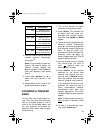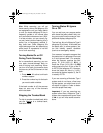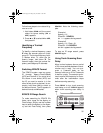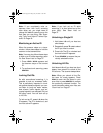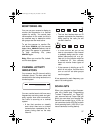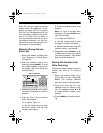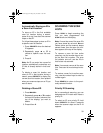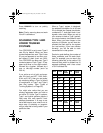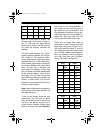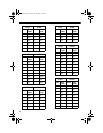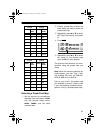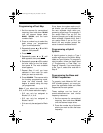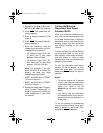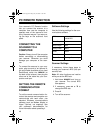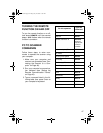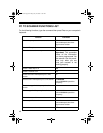
41
Each ID in the block is unique. The
left-most digit is the block number in
the ID. The next two digits identify
which fleet is active, and the last dig-
it(s) (after the hyphen) identifies the
subfleet.
The size codes selected by a Type I
system designer depend on the spe-
cific needs of the system’s users.
Some organizations might want many
subfleets with only a few radios each,
while another organization might want
only a few subfleets, with many radios
each. To scan Type I systems, you
must select or program a fleet map
with the same size code assignments
as the trunked system. If you do this
accurately, you will track all the fleet
and subfleet combinations used by the
system. In other words, you will hear
complete communications while moni-
toring a trunked system.
Note:
www.trunkscanner.com
plans to
make preset fleet maps available as
they become known.
If you do not already know the size
codes used, you will have to guess
them. But since you do not have to fig-
ure out all the blocks at once, this is
not as hard as it seems. Select a size
code for a block, then press
SEARCH
.
Now listen to the communications. If
you decide you are receiving most of
the replies to the conversations with
IDs assigned to the block you just pro-
grammed, then you have probably se-
lected the right size code and can
work on the next block of the map.
There are 16 preset fleet maps to
choose from, and it is best to start with
these when setting up a Type I or hy-
brid trunk scanning bank. If none of
the following preset fleet maps allow
you to follow complete conversations,
then you probably need to program
your own fleet map (see “Program-
ming a Fleet Map” on Page 44).
S11 2 16 256 1
S12 1 16 1024 2
S13 1 16 2048 4
S14 1 16 4096 8
E1P1 E1P2
Block Size
Code
Block Size
Code
0S110S4
1S111S4
2S112S4
3S113S4
4S114S4
5S115S4
6S116S4
7S117S4
E1P3 E1P4
Block Size
Code
Block Size
Code
0S40S12
1S41
(S12)
20-432.fm Page 41 Friday, July 14, 2000 11:30 AM



